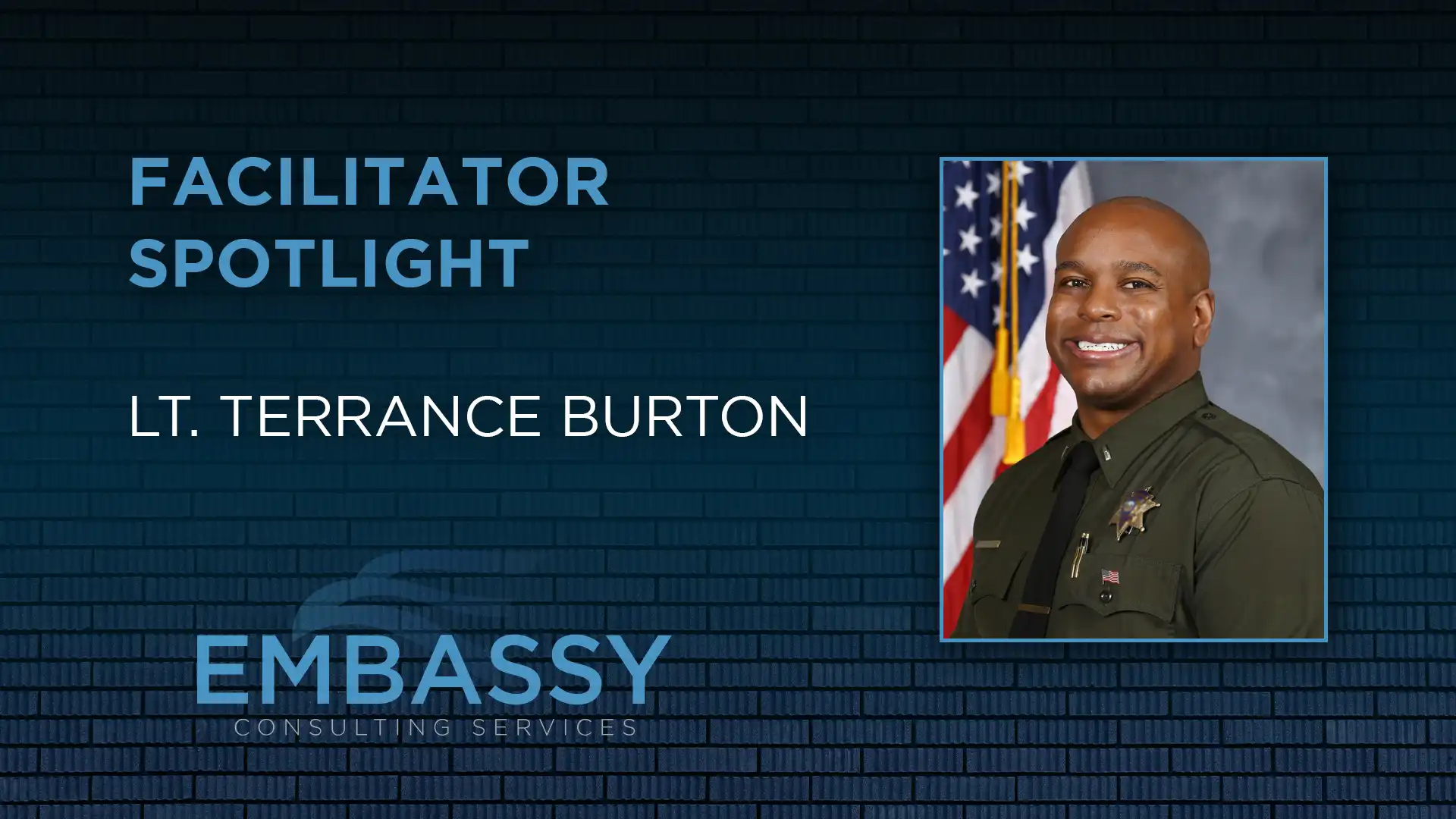Facilitator Spotlight: Mr. Terrance Burton
We’re thrilled to shine the inaugural spotlight on Mr. Terrance Burton, a Lieutenant with the Orange County Sheriff's Department. Currently serving as a Watch Commander for the Corrections Division, Terrance brings both leadership and a great sense of humor to everything he does. His commitment...


